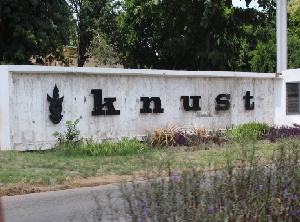The sheer number of graduate unemployment year in year out and the flaring disconnect between industry and academia has moved the Kwame Nkrumah University of Science and Technology (KNUST) to discuss with industry how to develop to a common platform to share expertise and input to address this worrying development confronting the country.
The KNUST, which is leading the charge, is motivated to see a change where students do not only graduate to seek employment but are trained to have the competence to become self-employed or otherwise be able to meet and even exceed industry expectations, after leaving school.
In addition to this the University seeks to deepen its role in contributing effectively to strengthen the competitiveness of industry through research activities.
It is in this regard among others that the University has initiated a platform to continuously interact with industry, civil society groups and researchers to overcome this lingering challenge of the gap between academia and industry with its attendant problems.
Speaking in an interview at a ‘Stakeholder Workshop on Academia-Industry Linkage Database,’ held by the KNUST, Prof. William Oduro, Leader of Work Package 2 of Building Strong University, said it is time for universities to put on the cloak of entrepreneurship and help to address the issue of mass unemployment.
He explained that among the key objectives of the creation of a common platform is to ensure an interactive session that can allow the University to be able to conduct research and input them into industries to grow their business.
He emphasized that the University wants to build the culture of science as a basis for industries to grow so interaction with industry will help to make this a reality.
Prof. Ooduro observed that the involvement of the industry this time will help to make the uptake of the research findings much easier unlike previously where industry was not consulted.
The Ashanti and Brong Ahafo Regional Manager of Association of Ghana Industries (AGI), Mr. Isaac Tandoh, noted the linkage between industry and academia has received a much wider attention given the enormous benefits that is in the balance.
However, he said the barrier to ‘bridging the gap’ has often been the cost of financing research by academia while industry also largely considers the benefit it will derive from research before making any financial commitment.
He expressed satisfaction with the ongoing attempts by KNUST to bring industry and academia together and observed that the creation of a database for a common platform for such interactions is the right call.
Against this backdrop, he was certain that opportunity offered will help to stretch far the benefits that exist for both sides to attract the required financial commitment and cooperation.
The Head of Kumasi Incubation Center, KNUST, Mr. Sam Akomea, acknowledged that the discussions forms part of efforts of the University to move away from ‘theory’ to practical and ensuring that students have the skills to become self-employed.
He appealed to industry players to avail themselves and collaborate more to make the objectives of the interaction a success.
Business News of Monday, 19 December 2016
Source: B&FT













